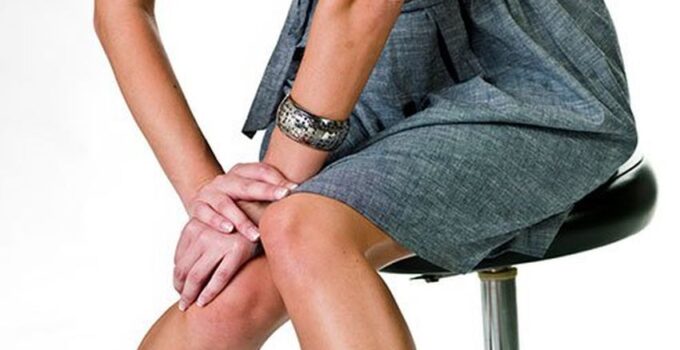Everyone is talking about how giving birth is a wonderful and fulfilling experience, but rarely will be spoken of some postpartum issues new moms have to face every single day. I’m not sure why women are not talking more about this since this is something that is completely normal after giving birth and about one in three women do develop this state.
When it comes to health here should be no place for shame and in first months support is what should be provided. We will discuss how this occurs and what you can do about it to make your life more comfortable.

source:alwaysdiscreet.com
Page Contents
What is it?
Postpartum loss of bladder control or urinary incontinence is a medical condition that affects one in three new moms. It is labeled as a state where a person has a problem withholding on the urine in the bladder. Do you know that sometimes you pee a little when you laugh? Well, this condition looks like this.
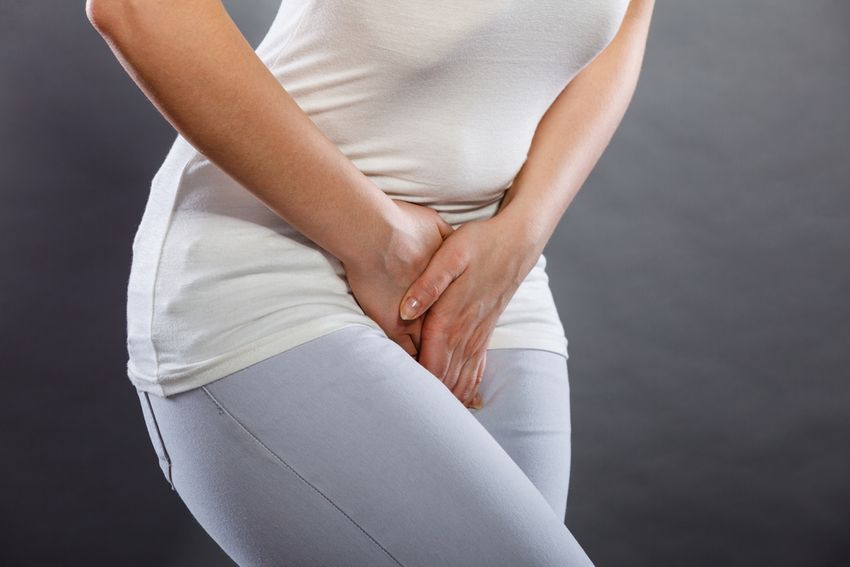
source:parents.com
Every time you have a certain pressure onto the bladder urine leaks a little. This can happen when you are laughing out loud and contracted abdominal muscles make pressure onto the low pelvic floor causing pressure onto the bladder. This pressure activates the natural response of the body which perceives this signal as a sign that you got to go and urine leaks.
So every action that allows abdominal muscles to contract will result in these little accidents if we can call them like that; so if you have a cough or you sneeze, blow your nose or you are lifting something heavy you can expect it to happen.
Why does it happen?
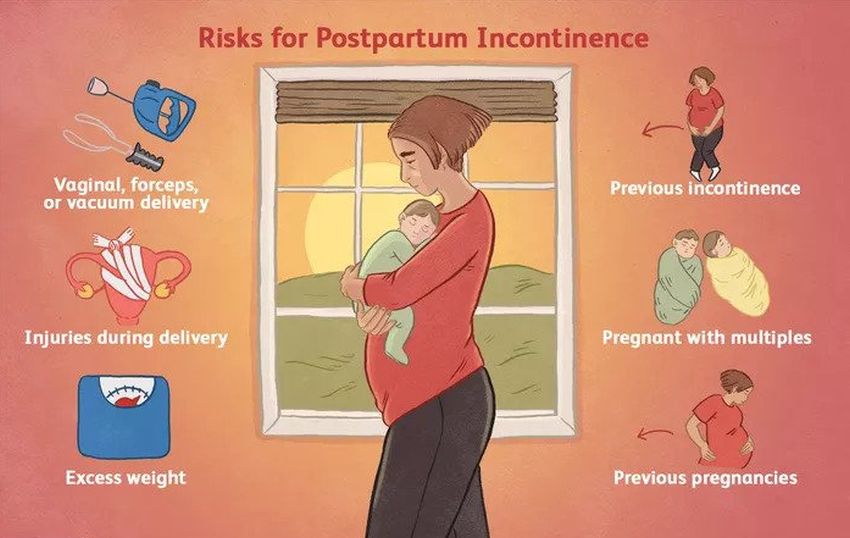
source:verywellfamily.com
Let’s get a little more medical and see into the real cause of why this so common postpartum state occurs in young and healthy women. Firstly, we need to remember the anatomy class and how different organs are located. Bladder and uterus lie in the same plane, one next to the other; as the pregnancy progress uterus is moved up and assumes a position above the bladder, not so comfortably sitting on top of it. This movement involves a lot of work of ligaments and muscles.
As the uterus expands, it starts to put more pressure onto the bladder which is being well supported by surrounding muscles. You remember that in the last weeks of pregnancy the pressure on the bladder is so great that you have considered sleeping on the toilet just to prevent you from waking up every hour to pee. Also, the position of the bladder and uterus are such that most of the pregnancy you won’t be able to empty it all the way, due to the pressure it withstands. So, for the whole nine months, your organs have slowly shifted and moved to accommodate the growing baby.
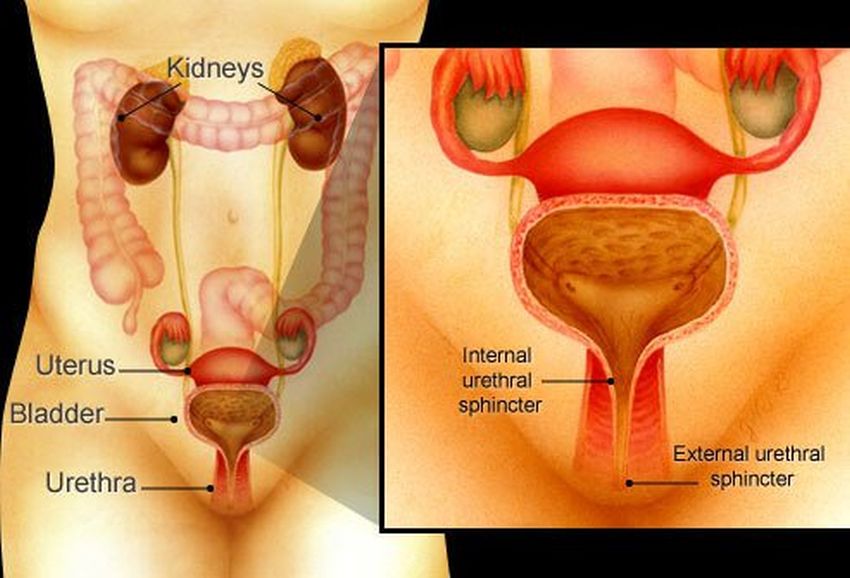
source:verywellfamily.com
After giving birth, in just a few hours you lose around ten kilograms from your uterus in the form of the baby and amniotic fluid. This is a very big change and the body needs time to put everything back into the place. After nine months of stretching and contractions during labor, your muscles can be additionally weakened. Muscles of the pelvic area and bladder were in the constant stretch and now have to slowly go back to the place they were before the pregnancy.
Some would say that the muscles don’t go weak but tired, it reminded me of the elastic band that you use all the time and after a while, it loses its elasticity; a similar thing happens here. This all leads to loss of control of the bladder movement and can be very unpleasant. Luckily this is not a permanent state, and after a while, your body takes an upper hand and successfully resolves this, for it, minor issue. Just be patient and let your body do the work for you, it will take up to 20 weeks to fully regain control, in some, this happens sooner in other later.
What can be done about it?
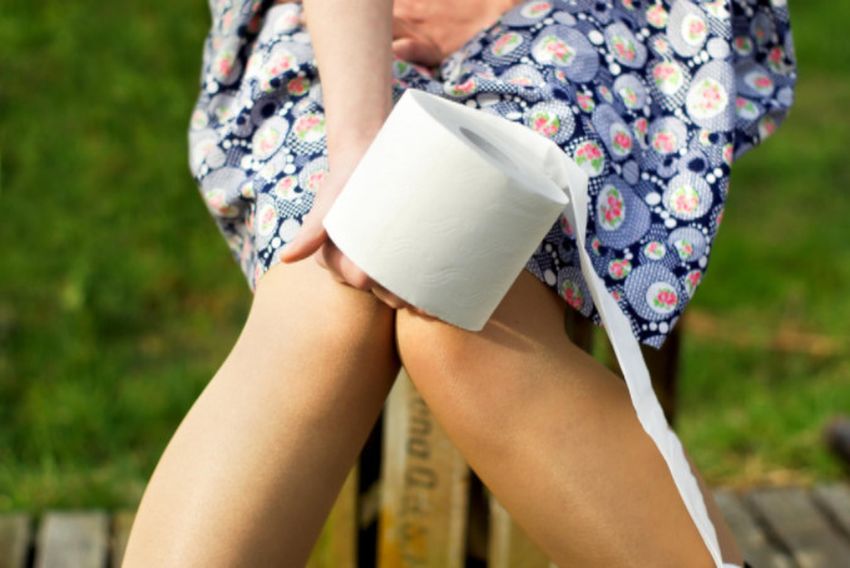
source:parents.com
So, it’s there, and now you know how it works it’s time to see what you can do about it. And trust me when I say there are things to do since sitting and crying is not an option.
Remember those Kegel exercises you did during and before pregnancy, continue with the training. They will help you build up loose muscles and regain control over your body. Even though it doesn’t seem much, it is good to do them since you want to resolve this in a short period of time.
You need to feel safe during the day, especially if this prevents you from doing everyday activities. So, prevent any leakage onto your underwear and clothes by using the right protection. There are specially designed pads made just for this and don’t hesitate to use them.
Remember that these are not dippers, these are light and comfortable pads made to catch every single drop that tries to escape without making you feel uncomfortable, wet and soggy. If you feel more comfortable making you purchase online, visit AvaCare Medical; here you will find different brands and will choose the one that suits your needs.
The bladder is composed of muscles and it will need additional training to get into its previous glory; so, eat healthily and if you have gained more than you should or makes you feel comfortable, try to slowly loos it since additional weight puts additional pressure to the bladder.

source:alwaysdiscreet.com
Constipation can additionally add to the pressure onto the organs, and cause discomfort. Also, try going to the bathroom every forty minutes, even if you don’t have to go, just so you can empty the bladder; if empty there is less chance of leakage. Do not dehydrate yourself in order to prevent this from happening. Drink enough water, but avoid diuretics since they can lead to frequent urination.
Conclusion
If this happens to you, do not despair. Not only that is completely normal, but it also occurs very frequently. Give your body time to get back into the saddle and cherish it. Eat healthily, drink plenty of fluids and train your muscles by doing small things for your body. Putting a pad to make yourself comfortable is not a shame, and you should do everything you can. If you know you are safe from any leakage you can freely enjoy your new role in life.

